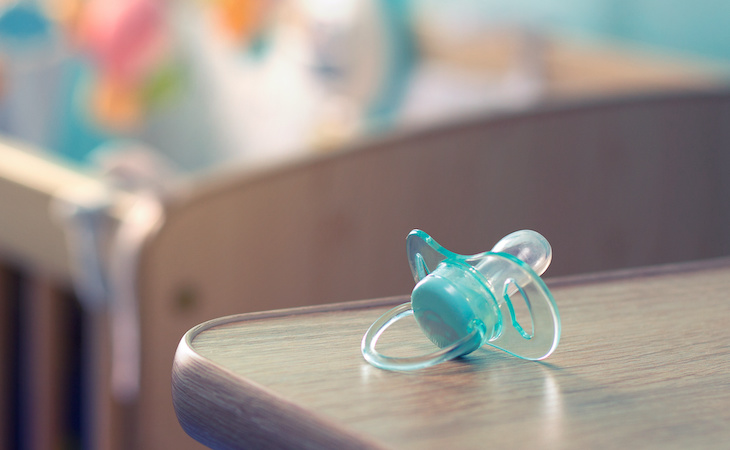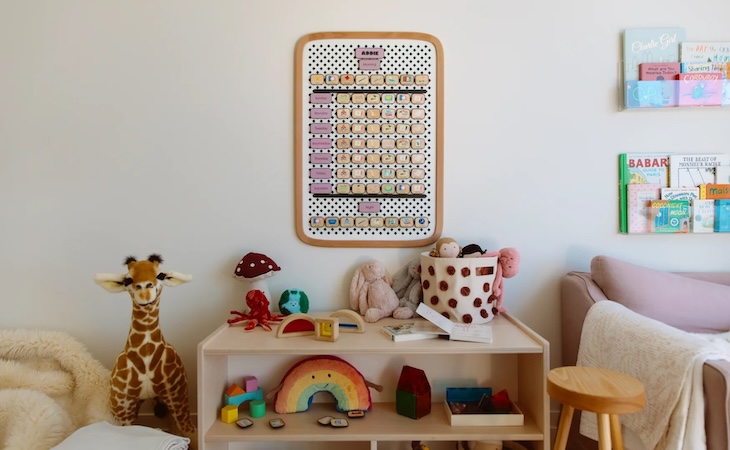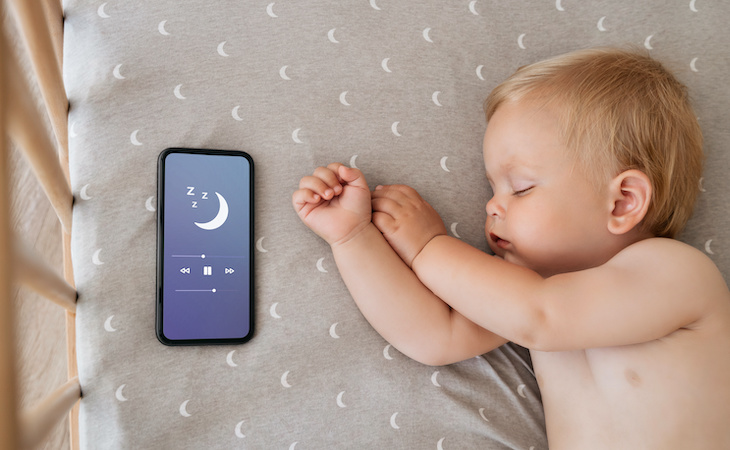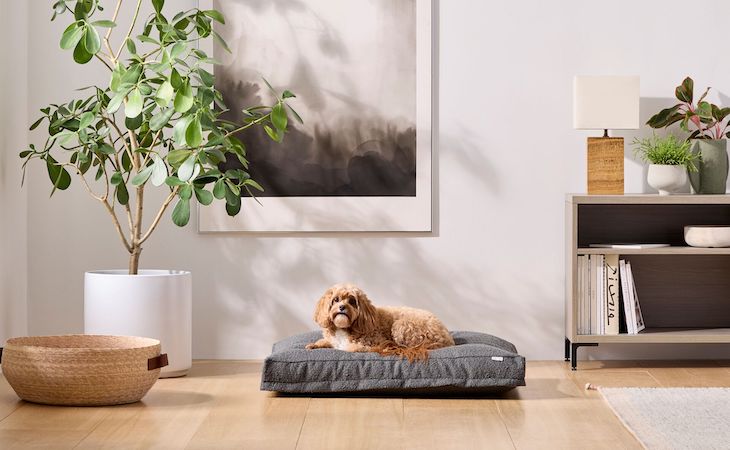As a new parent, there’s a lot you have to navigate, including whether or not it’s safe to use a pacifier to help your baby sleep. You probably have heard all sorts of things about pacifier use, both good and bad, and it’s tough to sort out the facts from your cousin’s friend’s opinion.
Here, we’ll explore the world of pacifiers and if and when you should let your baby sleep with one. We’ll also answer some of the most commonly asked questions about pacifier use so you can make the best decision for your family.
When should you introduce a pacifier to a baby?
If your baby drinks formula or breastmilk from a bottle, you can give them a pacifier as early as you’d like. Yes, even a 4-day-old baby can use that pacifier, including for sleep.
In fact, sometimes there are medical reasons to give a baby a pacifier. Babies have to coordinate sucking, swallowing, and breathing in order to eat. For premature babies, babies separated from their mothers, or those who have a medical condition, this ability may be delayed, and pacifier use can help strengthen the muscles they need in order to suck.
For babies who are breastfed, the answer has been historically more controversial. For Jessica Madden, MD, medical director at Aeroflow Breastpumps, her usual answer used to be to wait until at least three to four weeks when breastfeeding has been well-established before introducing a pacifier to a breastfeeding baby. After all, that’s what’s recommended by the American Academy of Pediatrics (AAP).
Now, she no longer gives these blanket recommendations. “In reality, many infants can go back and forth from breast to pacifier without a problem at all,” she says.
Her stance has been backed by research indicating this concept of nipple confusion pertains more to the nipples on baby bottles and not necessarily to pacifier use.
The bottom line seems to be, if your baby is able to latch and is getting enough milk, you can introduce a pacifier—but it’s always a good idea to run any questions you have by your child’s healthcare provider or lactation consultant.
What are the benefits of sleeping with a pacifier?
Your baby has a natural reflex to suck until they’re about a year old. Not only does this help your baby get nutrition from a breast or bottle but sucking has other non-nutritive benefits as well.
Babies can suck using a pacifier for comfort if they’re stressed or to help them fall asleep. You may notice, if your baby doesn’t have a pacifier, they will end up sucking their fingers anyway.
Pacifier use is associated with a lower risk of sudden infant death syndrome (SIDS), according to research. Experts aren’t sure exactly why, but some have suggested pacifiers can help keep a baby’s airway open or keep them from sleeping too deeply. These effects are still there even if the pacifier falls out of your baby’s mouth in the night while they’re sleeping.
What are the risks of sleeping with a pacifier?
There are things to keep in mind when using a pacifier safely. “In order for a pacifier to be used safely during infant sleep it should never be attached to a baby or a crib by a cord or ribbon as this creates a choking hazard,” explains Madden.
Pacifiers can also carry bacteria and increase the chance of oral yeast infections. Make sure to regularly wash pacifiers with soap and warm water.
There has been research indicating pacifiers can increase the chances of your baby developing ear infections. However, the AAP suggests weaning your baby from the pacifier by six months to decrease this risk. (Learn whether weighted sleep sacks are safe for babies.)
Tips for introducing a pacifier to your baby
If you want to try a pacifier for your baby, keep these tips in mind when beginning:
- Wash pacifiers before with hot soapy water before using them.
- Gently rub the pacifier nipple around the corner of your baby’s mouth. Their natural rooting reflex will cause them to turn their head toward the nipple and open their mouth.
- Don’t force it if your baby isn’t interested. Give them time to explore and get used to the idea. You may try giving it to them after they just fed. You may notice your baby never takes to a pacifier and that’s okay!
- Replace the pacifier if a part breaks off or looks worn or damaged.
When should you stop giving your baby a pacifier?
Madden says most babies wean themselves from a pacifier during the first year, but others continue to use their pacifier well into the toddler years.
If your child is still using a pacifier around 18 to 24 months old, it may be a good time to start the weaning process. However, Madden cautions not to wean during a time of a big life change, such as the birth of a younger sibling or starting daycare.
The American Academy of Pediatric Dentistry recommends weaning from a pacifier by age 3 to prevent dental issues. And since there’s an increased chance for ear infections with pacifier use, the AAP advises parents to wean from pacifier use at 6 to 12 months.
It’s up to you as a parent to decide the best time to wean your child from the pacifier. Talk with your child’s healthcare provider for additional support.
FAQs
Can a baby sleep with a pacifier at night?
Your baby can sleep with a pacifier at night—and this may even play a role in preventing SIDS, according to research. Sucking is an important skill and can be comforting for babies. Just remember to be mindful of keeping the pacifier clean and free from wear and tear.
Should you remove a pacifier when a baby is sleeping?
You don’t need to remove the pacifier from your baby’s mouth after they fall asleep. If the pacifier falls out of your baby’s mouth while they’re sleeping, it’s okay to leave it out as well.
Does your little one have RSV? We put together a guide for parents featuring sleep tips for babies with RSV.




